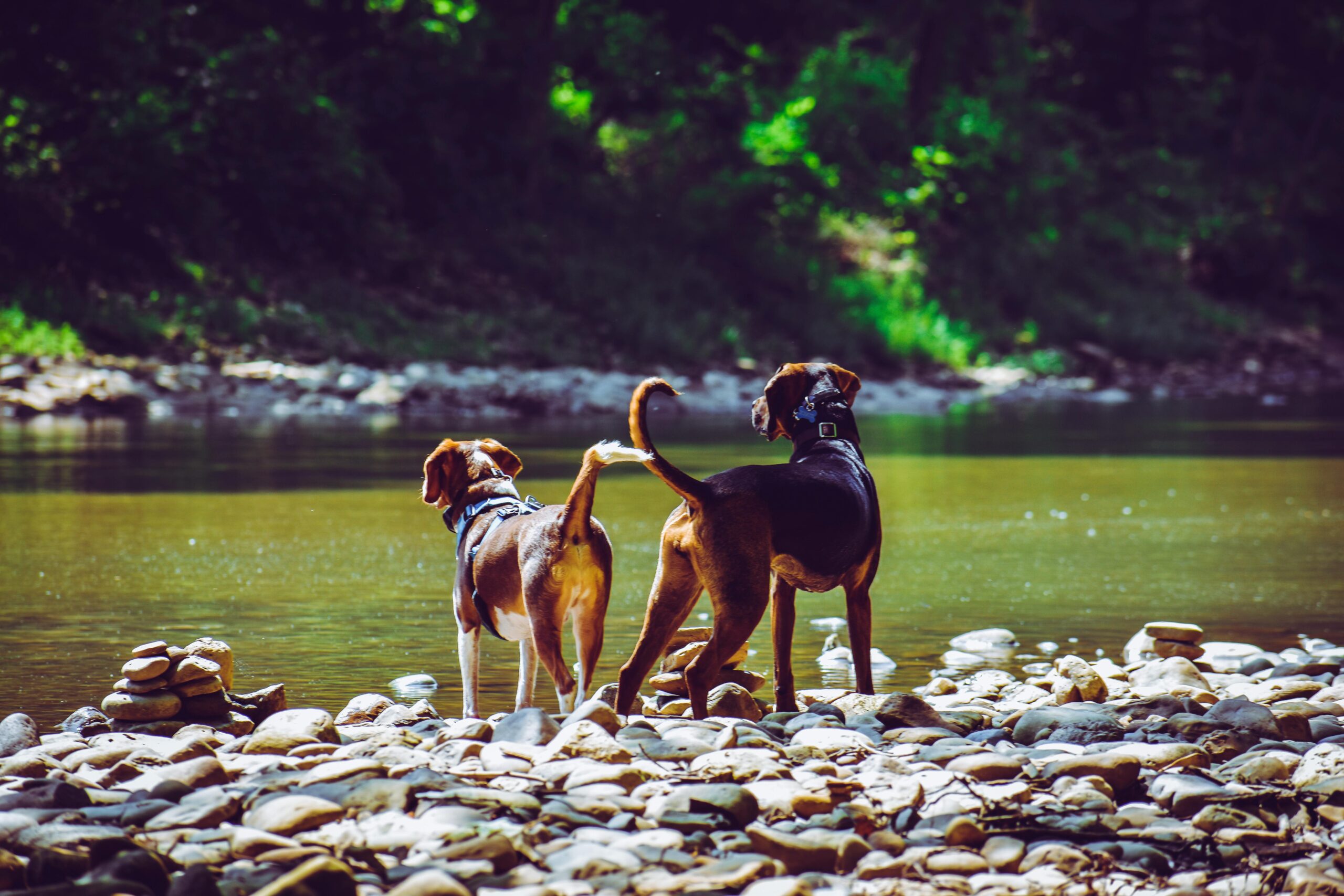

If you’re a dog owner who’s ever caught your puppy munching on rocks, you’re not alone—and it can be worrying.
Let’s take a look at this common canine quirk and how to help, including expert insights from Lemonade’s favorite vet, Dr. Stephanie Liff.
Common causes for puppies eating rocks
According to Dr. Stephanie Liff,
The most common causes we see for a dog eating rocks are pica, boredom, or teething. But there can be a handful of underlying reasons behind this behavior—some more serious than others.
Dr. Stephanie Liff
Here’s a breakdown of the most common reasons your puppy might be eating rocks:
Pica
Pica is a behavioral condition where dogs eat non-food items like rocks, sticks, or even poop. It may be linked to nutritional deficiencies, compulsive disorders, behavioral issues, or medical conditions. Puppies with pica often show an ongoing interest in eating inedible objects—not just once, but repeatedly.
Boredom and lack of stimulation
Puppies are curious and energetic, and without enough mental or physical stimulation, they may resort to chewing on rocks just to pass the time. If your puppy tends to chew more when left alone or unstimulated, boredom could be the root cause.
Anxiety or attention-seeking
Stress, separation anxiety, or simply craving attention can drive a puppy to eat things they shouldn’t—especially if doing so gets a big reaction from their owner. These pups might also show signs of clinginess, vocalization, or other destructive behaviors.
Teething
During the teething phase, chewing helps relieve discomfort—so puppies may chew on anything they can find, including rocks. If the rock-eating started around three to six months of age and seems tied to chewing in general, teething may be to blame.
Compulsive disorder or behavioral issues
In some cases, repetitive rock-eating behavior can point to a compulsive disorder or unresolved behavioral problem. These pups may seem fixated on rocks, even when toys or attention are available, and might display other obsessive behaviors as well.
Health issues
Occasionally, medical issues like nutritional deficiencies, intestinal parasites, tumors, or other underlying medical conditions can cause dogs to seek out and eat inedible objects like rocks. Always check with your veterinarian if the behavior is persistent.
How to help your puppy if they’re eating rocks
- Remove rocks and other inedible objects from your dog’s environment, especially areas in your yard or home where your puppy likes to explore
- Use a kennel or safe, puppy-proofed space when you can’t supervise your dog directly
- Give your puppy plenty of safe chew toys and puzzle toys to satisfy their need for chewing and provide mental stimulation and enrichment
- Make sure your puppy enjoys a balanced diet with high-quality dog food. Ask your vet if supplements may be needed to address potential nutritional deficiencies.
- Increase exercise and play for more physical stimulation, helping to stave off boredom and destructive behaviors
- Practice positive reinforcement by rewarding your puppy for chewing their toys and not rocks. Use redirecting if you catch them in the act.
- Address any signs of attention-seeking or separation anxiety by spending extra one-on-one time, introducing confidence-building training activities, and considering guidance from a certified behaviorist if needed
When to visit your vet
Eating rocks can sometimes lead to health problems, such as an upset stomach, blockages in the digestive tract, or dental injuries. According to Dr. Stephanie Liff, pet parents should watch for these warning signs after their puppy eats rocks or other non-food items:
- Vomiting or loss of appetite
- Abdominal pain, bloating, or behavioral changes
- Straining to poop or other digestive issues
- Lethargy
Before we go…
Puppies are full of surprises, and sometimes, their curiosity can land them (and you) at the vet.
Having pet insurance means you can handle the bumps (and rocks) in the road with confidence, always putting your puppy’s well-being first.
A few quick words, because we <3 our lawyers: This post is general in nature, and any statement in it doesn’t alter the terms, conditions, exclusions, or limitations of policies issued by Lemonade, which differ according to your state of residence. You’re encouraged to discuss your specific circumstances with your own professional advisors. The purpose of this post is merely to provide you with info and insights you can use to make such discussions more productive! Naturally, all comments by, or references to, third parties represent their own views, and Lemonade assumes no responsibility for them. Coverage and discounts may not be available in all states.



